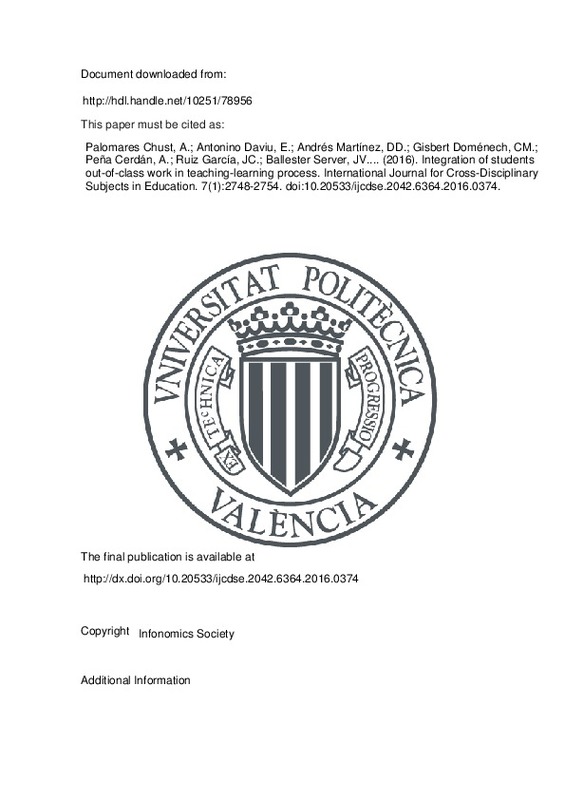JavaScript is disabled for your browser. Some features of this site may not work without it.
Buscar en RiuNet
Listar
Mi cuenta
Estadísticas
Ayuda RiuNet
Admin. UPV
Integration of students out-of-class work in teaching-learning process
Mostrar el registro completo del ítem
Palomares Chust, A.; Antonino Daviu, E.; Andrés Martínez, DD.; Gisbert Doménech, CM.; Peña Cerdán, A.; Ruiz García, JC.; Ballester Server, JV.... (2016). Integration of students out-of-class work in teaching-learning process. International Journal for Cross-Disciplinary Subjects in Education. 7(1):2748-2754. https://doi.org/10.20533/ijcdse.2042.6364.2016.0374
Por favor, use este identificador para citar o enlazar este ítem: http://hdl.handle.net/10251/78956
Ficheros en el ítem
Metadatos del ítem
| Título: | Integration of students out-of-class work in teaching-learning process | |
| Autor: | Ballester Server, José Vicente | |
| Entidad UPV: |
|
|
| Fecha difusión: |
|
|
| Resumen: |
[EN] Out-of-Class Work (OCW) is a crucial part of students’ learning process. The continuous assessment of students’ OCW provides many opportunities to fix students’ mistakes and misunderstandings, while improving courses’ ...[+]
|
|
| Derechos de uso: | Reserva de todos los derechos | |
| Fuente: |
|
|
| DOI: |
|
|
| Editorial: |
|
|
| Versión del editor: | http://dx.doi.org/10.20533/ijcdse.2042.6364.2016.0374 | |
| Código del Proyecto: |
|
|
| Agradecimientos: |
|
|
| Tipo: |
|







![[Cerrado]](/themes/UPV/images/candado.png)


